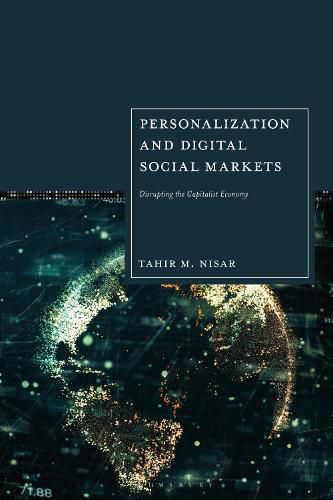Readings Newsletter
Become a Readings Member to make your shopping experience even easier.
Sign in or sign up for free!
You’re not far away from qualifying for FREE standard shipping within Australia
You’ve qualified for FREE standard shipping within Australia
The cart is loading…






Tahir Nisar presents a cogent, compelling account of recent developments and disruptions within the digital economy, and particularly within the industrial and service sectors. Through an original, overarching framework rooted in the concept of personalization and its antecedents, Nisar identifies radically new forms of relationships, both economic and social, among firms and customers. These new relationships are driving major changes in commercial and industrial firms' policies and practices, and in turn, in the entire market economy. E-commerce trading, user-generated content, virtual communities, co-creation, influencer movements, FinTech, and sharing economies have strengthened the hands of consumers and have encouraged developments in cognitive technologies such as AI automation, which in turn create new ways of working and disruptions to traditional capital-labour relations. Ultimately, what emerges from this study is a picture of how digital technologies unleash forces of change that are creating new forms of social and economic sharing arrangements and new forms of social organization.
For its empirical depth and and theoretical rigor, this book is essential reading for researchers and students interested in emerging, alternative forms of economics, business, and management, and particularly those interested in the digital economy and the state and future of capitalist markets.
$9.00 standard shipping within Australia
FREE standard shipping within Australia for orders over $100.00
Express & International shipping calculated at checkout
Tahir Nisar presents a cogent, compelling account of recent developments and disruptions within the digital economy, and particularly within the industrial and service sectors. Through an original, overarching framework rooted in the concept of personalization and its antecedents, Nisar identifies radically new forms of relationships, both economic and social, among firms and customers. These new relationships are driving major changes in commercial and industrial firms' policies and practices, and in turn, in the entire market economy. E-commerce trading, user-generated content, virtual communities, co-creation, influencer movements, FinTech, and sharing economies have strengthened the hands of consumers and have encouraged developments in cognitive technologies such as AI automation, which in turn create new ways of working and disruptions to traditional capital-labour relations. Ultimately, what emerges from this study is a picture of how digital technologies unleash forces of change that are creating new forms of social and economic sharing arrangements and new forms of social organization.
For its empirical depth and and theoretical rigor, this book is essential reading for researchers and students interested in emerging, alternative forms of economics, business, and management, and particularly those interested in the digital economy and the state and future of capitalist markets.